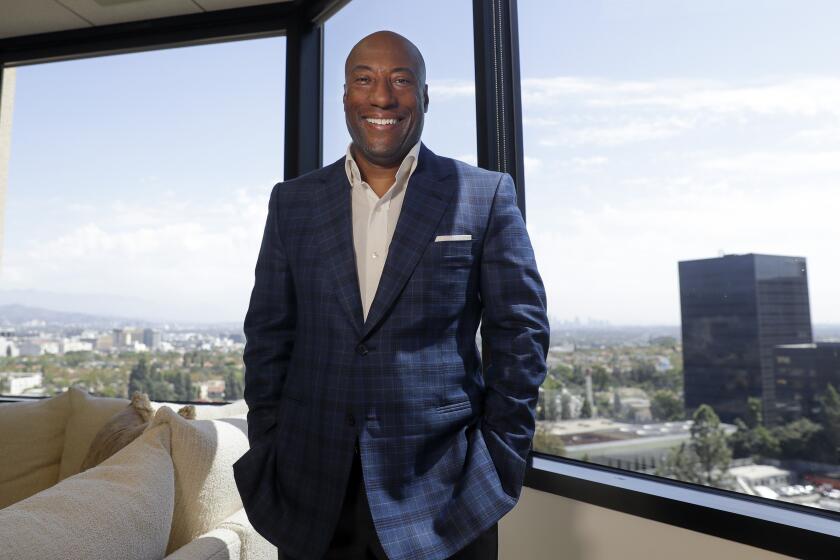PETER SERKIN: GRACE UNDER PRESSURE
- Share via
Did it make Peter Serkin nervous when Toru Takemitsu, composer of “Riverrun,” the work Serkin will give its world premiere performance tonight with the Los Angeles Philharmonic, delivered the manuscript only three weeks ago?
“Not really,” Serkin says, in his typically intense but deliberate way. “I’m used to composers just barely meeting their deadlines. It makes it more exciting.”
Being an old friend of the composer--”We’ve been very close, going way back to the ‘60s,” the pianist acknowledges--Serkin certainly wasn’t worried about the work’s arriving, or about its quality. He says he knows Takemitsu well enough not to question those things.
“And, even though the harmonic language (of “Riverrun”) is close to what I am used to, the piece may not be really typical. For one thing, it’s fast.
“Takemitsu usually writes slow music, music that is quite spacious. This time, it’s quick.
“Once, he told me--and I’m not sure he wasn’t kidding--that he thought it was not in the Japanese temperament to feel an Allegro. So I suggested that he make this piece--really his third concerto for piano and orchestra, though he hasn’t called any of them that--fast. Now, I really wonder if he wasn’t kidding.”
After three weeks’ acquaintance with the piece, Serkin tries to describe it.
“It’s short, just 10 1/2 minutes long. It makes a beautiful effect. The orchestra is large, and with four percussionists playing a number of mallet instruments--glockenspiel, marimba, vibraphone. And there’s a celesta. With Takemitsu, I think there’s always a celesta.
“Takemitsu actually came to Western music through the 20th Century. I mean, he knew Messiaen first, then, Stravinsky and Webern, then Debussy. Right now, he is really only getting around to Haydn and Beethoven. And I think I can hear this backward progression in his harmonic language.”
The famous son of a famous father (pianist Rudolf Serkin) and the grandson of a celebrated grandfather (violinist Adolf Busch), the 37-year-old pianist follows a family tradition of championing living composers.
At the same time, he has not avoided the standard repertory. At UCLA last week, for example, he played the first of two recitals devoted to the last six sonatas of Beethoven; the second installment is due April 12.
Where his father has often played works by Busoni and Reger, however, Peter Serkin has specialized in unfamiliar scores by Messiaen, Wuorinen, Takemitsu, and, most recently, (the late) Stefan Wolpe. He has also championed the works of Peter Lieberson, whose Piano Concerto Serkin introduced, with the Boston Symphony, two seasons ago, and whose Piano Sonata, as yet unwritten, Serkin has commissioned.
One wonders if there are other neglected composers Serkin knows about that we should also discover.
“I don’t think so,” the tall, quick-thinking and slow-talking pianist answers. “But I can’t be sure. Really, I don’t get to many concerts.”
More to Read
The biggest entertainment stories
Get our big stories about Hollywood, film, television, music, arts, culture and more right in your inbox as soon as they publish.
You may occasionally receive promotional content from the Los Angeles Times.










